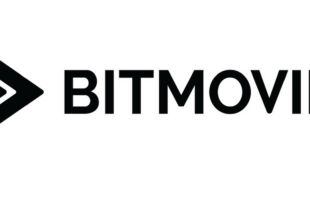Although TV and radio spending remained stable, other media sectors suffered from budget cuts particularly in the real estate and luxury goods industries. Ad spend in the tobacco industry fell dramatically as anti-smoking legislation came into effect. Taiwan’s health authorities banned smoking indoors in public areas. The law also bans cigarette ads and promotions. According to data from Nielsen Taiwan, magazine spending was the worst affected, falling 16.4 percent on year. Out-of-home dropped 15.1 percent while newspaper ad revenues saw a 9.7 percent decrease. TV was buoyed by a summer upswing in ad spend as marketers pooled most of their limited budgets into the peak season, driving up airtime prices from May to July. Airtime was sold out despite a 100 percent increase from off-season prices. “Advertisers waited for summer to spend because they want the best timing,” said Robert Hsieh, CEO of ZenithOptimedia. “Few have raised budgets for 2009. Instead they held off spending in Q1 and most of Q2.” Spend is expected to rise further in 2010. “The 2010 outlook of ad investment seems optimistic and minimum 10 percent growth is anticipated on both Cable and Terrestrial TV. With a stable viewership (supply), the increased TV ad investment (demand) will cause another cost inflation in 2010 for sure,” Hsieh said. Terrestrial and pay TV Taiwan has 7.6 million TV households, an almost 100 percent penetration rate. Cheap subscription rates (around US$16 per month) contribute to the prevalence of pay TV across the island, making it the most successful pay TV market in Asia. Latest figures from ACB Nielsen and CASBAA indicate 78 percent of TV households (5.93 million homes) have subscription TV, with an 86 percent share of viewing in subscription TV homes. Data from ACB Nielsen lists free-to-air FTV as the top channel in 2009, with a TVR of 0.97. Its subscription news channel FTV News came in at ninth with a TVR of 0.28. Cable TV network Sanlih E-Television (SET) came in second with a 0.73 TVR. CTV was No. 4, followed closely by TTV, with TVRs of 056 and 0.52 respectively. SETN, the news arm of SET, and cable network TVBS News tied for No. 5 with TVRs of 0.36 each. Competition and convergence In September, Taiwan Mobile announced its intent to acquire a majority stake in cable TV system operator Kbro from the Carlyle Group in a deal worth NT$32.8 billion (US$1 billion). Kbro has 12 cable TV networks and about 1.1 million subscribers. The acquisition, which was approved by the Fair Trade Commission in December, will boost Taiwan Mobile’s cable TV subscribers to 1.6 million, giving it about a one-third share of Taiwan’s pay-TV market. Major telco player FarEasTone has also expressed interest in acquiring a cable TV business, but it shot down rumors of talks with MBK Partners for its stake in cable TV system operator China Network Systems In the era of convergence, industry players are also looking to mobile TV for new revenue streams. The National Communications Commission (NCC) has plans to issue one technology-neutral mobile TV license through competitive bidding by the end of 2010. One of the parties interested in bidding for a mobile TV license is LinkMedia, a joint venture between handset chipmaker Qualcomm Inc. and local manufacturer Cheng Uei Precision Industry Co. LinkMedia general manager Randy Lee told local media that, based on the experience of other countries, subscribers could expect to pay a monthly fee of between NT$200 and NT$300 for mobile TV services. He stated that if demand is high after the introduction of mobile TV services, this could translate into business opportunities of at least NT$4.6 billion to NT$7.59 billion per month. Digitization opportunities The government continues its aggressive push to phase out analog signals by 2012, hoping to speed the conversion from analog to digital terrestrial TV across the island with a NT$10.5 billion (US$300 million) proposal to subsidize set-top boxes. The move could pave the way for more digital platforms such as interactive TV. In its September 2009 financial report, Chunghwa Telecom (CHT) said it had 668,000 subscribers to its IPTV service MOD (Multimedia on Demand), a 13.1 percent increase year on-year. Last year, the company signed a video-on-demand agreement with Hong Kong’s TVB to provide 1,200 hours of content (mainly drama series). CHT also launched a special zone for interactive ads in October, as well as interactive games for the Deaflympics 2009. Virtual zones created by residential IPTVs could eventually lead to targeted advertising. Broadband Network Systems (BNS) recently completed the first phase of its community-based IPTV service in Taiwan, connecting 1,500 homes to 45 TV channels, including exclusive Chinese channels not seen on cable TV, true HD TV channels and video-on-demand content, TV shopping and TV advertising services. Max Media, its largest in-building broadband service provider, will operate the community-based IPTV service. Changing landscape Amendments to the Radio and Television Act would allow for the issuance of TV and broadcasting licenses via public auctions and open bidding, in addition to the current panel review process. The revision would also lengthen the period of validity for such licenses to nine years from the current six years, as well as extend the period between regular reviews of TV and broadcast operators from two years to three years. Recent moves by the NCC are further changing the rules for the industry. NCC decided it would no longer mandate cable TV service providers to carry terrestrial channels, forcing cable providers to negotiate with terrestrial channels for their programming. The NCC has also submitted a proposal to allow cable operators to offer services in different regions of the country, provided that any operator’s customers do not exceed one-third of TV households nationwide. Currently, cable television operators are only allowed to offer services in designated regions. The NCC is hoping the change will make the cable TV service sector more competitive. “Now each region only has one or two cable television service providers. Once the amendment is passed, the market will be open to competition, which will raise the overall operating efficiency,” said NCC spokesperson Chen Jeng-chang.
Ad – Before Content
Related Articles
- New Unanmed Memory season 2 key visual unveiled
©2022 Kuji Furumiya/KADOKAWA/Project Unnamed Memory
Paramount+ and MTV announce Dating Naked UK has been renewed for a second series
Gyeongnam Culture and Arts Foundation Invests in Ikegami UHK-X700 4K-UHD HDR Cameras
LFP Media Transforms Video Experience and Maximizes Revenues with the Bitmovin Player
Iceland’s Glassriver options Reykjavik Noir trilogy from Lilja Sigurdardottir for series adaptation, picked up by broadcaster Síminn
OOONA Partners with Audio Description Associates, LLC









